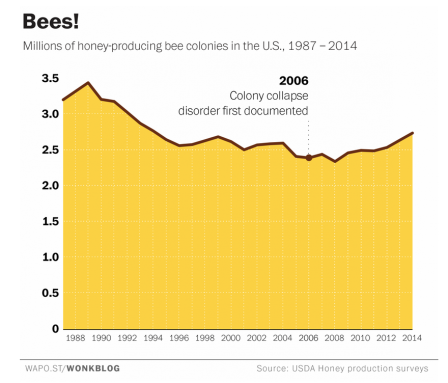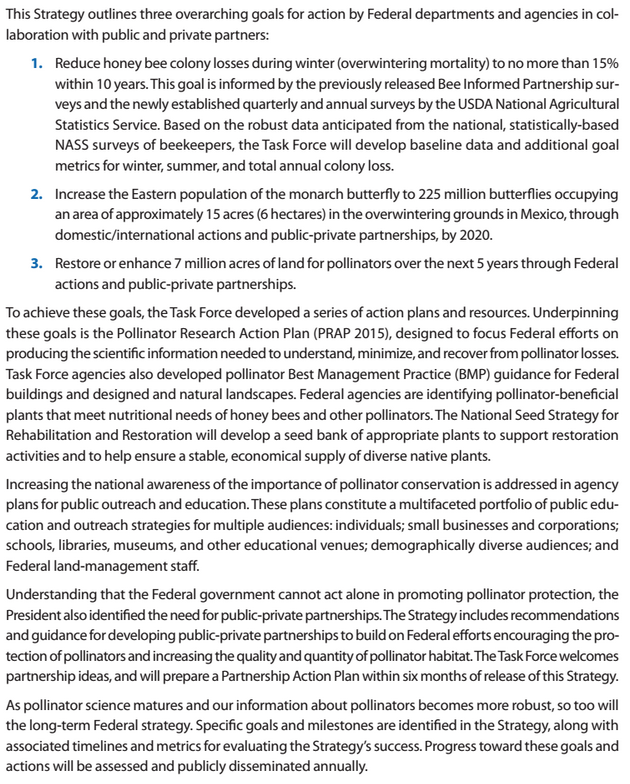The number of honey-producing bee colonies is higher than it has been in 20 years, according to the newest USDA data. After consistent decline from the late 1980s to the early 2000s, there has been a recent rise in the number of colonies due to federal regulations promoting bee health—scratch that—beekeepers responding to changing prices of honey, bees, and beekeeping equipment.
The first-of-its-kind “National Strategy to Promote the Health of Honey Bees and Other Pollinators” was only introduced by the Executive Branch this year, after the recent bee population increase, and will probably try to steal credit from the market naturally working toward an increased bee population in the years to come.

Image source: Washington Post.
The Washington Post article reports that the price of honey has just about doubled over the course of 2006-2014, and so have the fees beekeepers charge to farmers for bringing their colonies to pollinate fruit, nut, and veggie crops.
These increasing prices for beekeeping outputs make the purchase of beekeeping inputs a more profitable investment. Beekeeping inputs include bees, which mean more colonies are created and maintained by beekeepers.
Consumer demand drives the price of honey, which makes honey production profitable, which increases the demand for the factors of production specific to honey production. Voilà, more bees.
Also, consumer demand drives the price of food, including fruits, nuts, and veggies, which makes farming profitable, which increases the demand for pollinating services, which increases the profitability of beekeeping, which increases the demand for the factors of production specific to beekeeping, like bees.
Contrast these natural, fine-tuned, and self-regulating market mechanisms (profit/loss, imputation, supply and demand) to a few of the proposed actions from the N.S.P.H.H.B.O.P., below:



